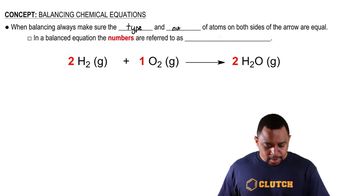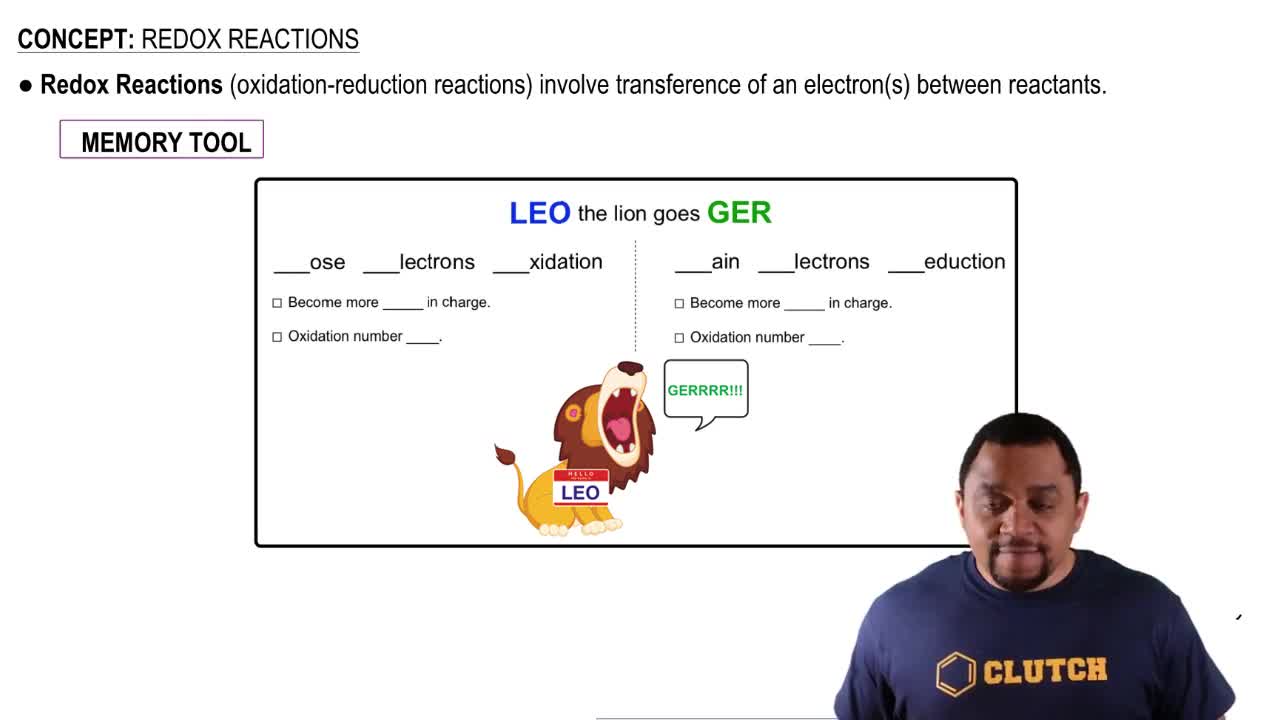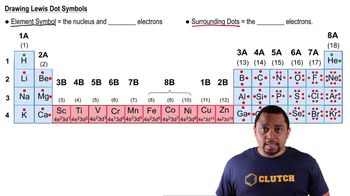Here are the essential concepts you must grasp in order to answer the question correctly.
Balancing Chemical Equations
Balancing chemical equations involves ensuring that the number of atoms for each element is the same on both sides of the equation. This is based on the law of conservation of mass, which states that matter cannot be created or destroyed in a chemical reaction. Coefficients are adjusted in front of compounds to achieve balance, while subscripts indicate the number of atoms in a molecule.
Recommended video:
Balancing Chemical Equations
Oxidation-Reduction Reactions
Oxidation-reduction (redox) reactions involve the transfer of electrons between substances, leading to changes in oxidation states. In these reactions, one species is oxidized (loses electrons) while another is reduced (gains electrons). Identifying the oxidation states of elements in the reactants and products is crucial for balancing redox equations.
Recommended video:
Oxidation and Reduction Reactions
State Symbols in Chemical Reactions
State symbols indicate the physical state of reactants and products in a chemical equation. Common symbols include (s) for solid, (l) for liquid, (g) for gas, and (aq) for aqueous solutions. Understanding these symbols helps in visualizing the reaction conditions and is essential for accurately balancing equations, especially when dealing with solutions and gases.
Recommended video:



